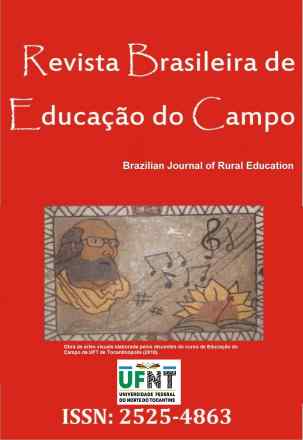Reflections on teaching aquaculture in the Marajó archipelago, Eastern Amazon
Revista Brasileira de Educação do Campo
Reflections on teaching aquaculture in the Marajó archipelago, Eastern Amazon
Autor Correspondente: F. Nilo Lima da Silva | [email protected]
Palavras-chave: rural education, aquatic organisms, island, amazon.
Resumos Cadastrados
Resumo Inglês:
Aquaculture is a growing agricultural activity in the Marajó Archipelago, State of Pará, Brazil. Thus, it is important to discuss the creation of aquatic organisms in technical courses in the field of agrarian sciences. Given this, the present study aimed to understand the students’ reflections in agriculture regarding the area of aquaculture, through the application of diagnostic analysis. The methodology consisted of a qualitative and explanatory field research. The study was developed with 50 students of the first year of high school of the technical course in Agriculture of the Federal Institute of Education, Science and Technology of Pará (IFPA), Campus Breves. In conclusion, the students declared that they found the subject of aquaculture important as a discipline within the technical course, although they interested in fish farming. The lack of knowledge about aquaculture ventures in Marajó may be one of also demonstrate little affinity with the area; those who have shown affinity are the factors responsible for the students' lack of interest in the area, because in the region the culture of fishing activity has been even stronger for fish generation in the Marajó archipelago.

